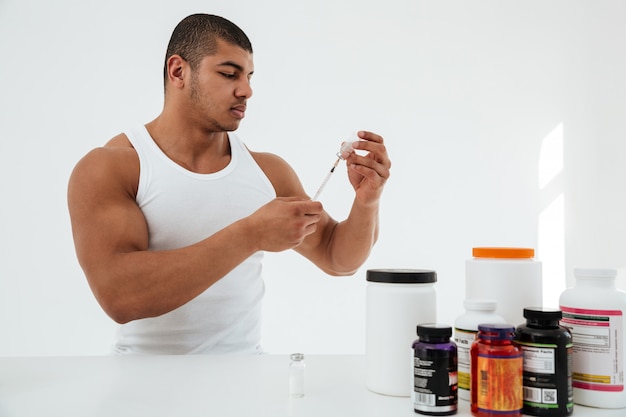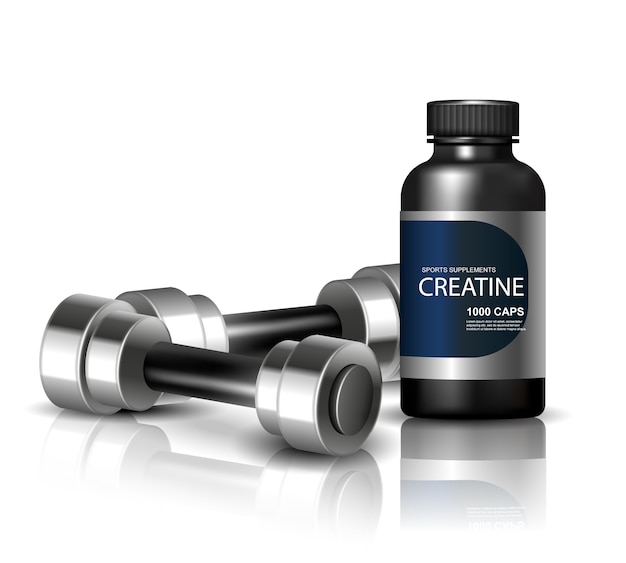From gym bros to social media influencers, creatine has exploded in popularity. Once a niche supplement for bodybuilders, it’s now being promoted for everything from muscle gain to brain health. But with so much hype, what does the actual scientific evidence say? Is creatine a miracle molecule or just another overhyped trend?
Creatine is a naturally occurring compound found primarily in muscle cells. It plays a crucial role in energy production during high-intensity, short-duration activities like weightlifting, sprinting, or jumping. The body produces creatine in the liver, kidneys, and pancreas, and it’s also obtained through dietary sources like red meat and fish.
Supplemental creatine—most commonly as creatine monohydrate—increases the body’s stores of phosphocreatine, which helps regenerate adenosine triphosphate (ATP), the primary energy currency of cells. More ATP means more energy for explosive movements, which is why it’s popular among athletes.

Unlike many supplements that lack robust research, creatine is one of the most extensively studied ergogenic aids in sports nutrition. Decades of research support several key benefits:
Despite strong evidence, some skepticism remains. A recent study reported by the New York Post questioned creatine’s effectiveness, suggesting it might not significantly enhance muscle growth beyond placebo in certain populations. However, experts note that such findings are outliers and often fail to account for variables like training intensity, dosage, or duration of supplementation.
Moreover, creatine’s effects are not universal. Some individuals—estimated at 20–30%—are "non-responders," meaning they see little benefit. This may be due to already high dietary creatine intake or genetic factors affecting creatine transport into muscles.
Creatine is generally considered safe for healthy individuals when used as directed. Long-term studies—some lasting up to four years—have found no serious adverse effects. However, some people report mild side effects such as:
A common concern is kidney health. While creatine increases creatinine levels—a marker sometimes used to assess kidney function—this does not indicate kidney damage in healthy people. However, those with pre-existing kidney conditions should consult a healthcare provider before use.

As creatine gains mainstream attention, new product forms like gummies and flavored powders have flooded the market. While convenient, independent tests have shown that some gummy brands contain little to no actual creatine, raising concerns about quality and value.
Experts recommend sticking with well-researched forms like creatine monohydrate, which is inexpensive, effective, and backed by science. Avoid paying a premium for flashy packaging or unproven delivery methods.
For most people, a daily dose of 3–5 grams of creatine monohydrate is sufficient. Some opt for a "loading phase" of 20 grams per day (split into 4 doses) for 5–7 days to saturate muscles quickly, followed by a maintenance dose. However, loading is optional—consistent daily intake will achieve the same results over time.
Taking creatine with carbohydrates or protein may enhance absorption, though it’s not strictly necessary. Timing is flexible; what matters most is daily consistency.
Creatine is more than just a fitness fad. It’s one of the most researched supplements with strong evidence supporting its benefits for athletic performance, muscle growth, and possibly even brain and metabolic health. While not a magic pill, it’s a safe and effective tool when used appropriately.
As with any supplement, it’s important to look beyond influencer endorsements and focus on science. Choose reputable brands, stick to proven forms, and remember: creatine enhances effort—it doesn’t replace it. You still need to train hard and eat well to see results.

Fitness

Fitness

Fitness

Fitness

Health

Health

Health

Health

Health

Wellness

Health

Health

Health

Fitness

Health

Health